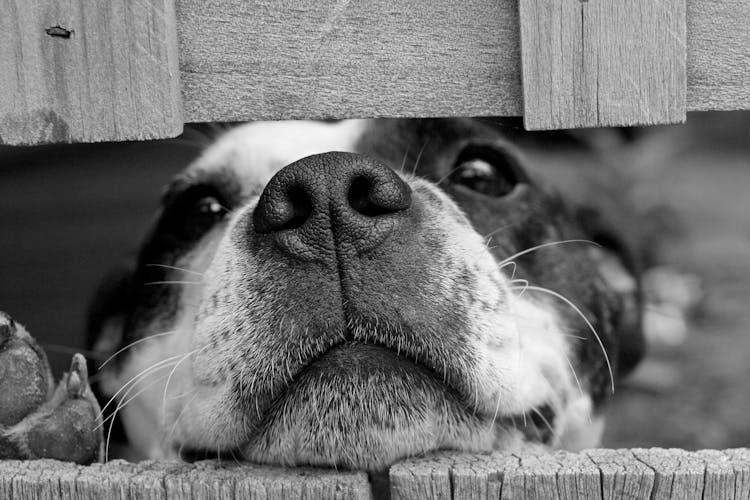All Categories
Featured
Table of Contents
Recognizing Signs of Canine Pregnancy
Determining if your dog is pregnant can be an essential aspect of responsible pet ownership, enabling you to provide appropriate care during this critical time. Early detection not only ensures the health of your dog but also helps in preparing for the arrival of puppies. Pregnancy in dogs, unlike in humans, can go undetected for several weeks, making it imperative for dog owners to be vigilant. One of the first indicators is the physical changes that occur due to hormonal fluctuations, which can influence various aspects of your dog's behavior and health.
The best method for identifying pregnancy in dogs is through clinical assessments by a veterinarian, but knowing the signs can be helpful. Early signs of pregnancy can often be minimal or mistaken for other conditions. Behaviorally, you may notice your dog becoming more affectionate or, conversely, wanting more solitary time as she prepares for mothering. Feeding habits might also alter; some dogs exhibit an increased appetite while others lose interest in food, particularly during the early weeks.
When your dog enters the third or fourth week of pregnancy, physical changes become more evident. Increased weight gain, along with an enlarged abdomen, is a classic sign that your dog may be pregnant. You might also observe that her nipples appear enlarged and more prominent, which can be a bittersweet sign that she is nurturing new life. Additionally, as pregnancy progresses, dogs may display nesting behavior, where they gather bedding or soft materials to create a cozy space for their puppies.
To further assess whether your pet is expecting, you might consider an at-home pregnancy test. Some options include dog pregnancy test kits designed for quick detection. These tests can save time and help ease your uncertainties, though a vet's confirmation is favored for definitive verification.
Testing Procedures for Canine Pregnancy
Professional veterinary assistance is indispensable when confirming pregnancy. Several diagnostic methods can accurately determine whether your dog is indeed pregnant. Among the primary methods is abdominal palpation, which involves the vet gently feeling the dog’s abdomen to identify the developing puppies, typically around 28-30 days after mating. This hands-on approach, however, requires experience, as it can be challenging to detect pregnancy in dogs that are particularly overweight.
Another effective method is an ultrasound scan performed between 25-35 days post-mating. This technique is beneficial for confirming pregnancy and estimating the number of puppies your dog may have. Ultrasounds can also reveal fetal heartbeats, which can be a joyful experience for pet owners. For a more clinical approach, a relaxin hormone test can be conducted, which measures the level of this hormone within the dog’s body, usually around 25-30 days after breeding.
As the pregnancy progresses, an X-ray examination can provide clarity on the number of puppies, which is best performed around 55 days of gestation. While X-rays help in counting the puppies, they also serve to evaluate the dog’s overall health and the developing puppies’ positioning. Each diagnostic method has its place, and combining them can provide the most comprehensive understanding of your dog’s pregnancy.
Caring for Your Dog as She Prepares for Motherhood
Once pregnancy is confirmed, it becomes crucial to monitor her closely. Regularly scheduled vet visits will ensure that both your dog and her developing puppies are healthy. Teaming up with your veterinarian allows for tracking her weight gain, behavioral changes, and overall body conditioning, which are significant indicators of her well-being. A veterinary professional can also provide guidance on necessary dietary changes, supplementation, and prenatal vitamins, ensuring your dog receives adequate nutrition during this vital period.
Feeding your pregnant dog a nutritious, balanced diet is fundamental. Dog prenatal vitamins, such as dog prenatal vitamins, can enhance recovery and milk production later on, ensuring the health of both mom and puppies. Alongside nutrition, it’s vital to ensure that your dog remains hydrated and comfortable as she approaches her due date.
As your dog nears the end of her pregnancy, creating a safe and quiet space for her to give birth is paramount. Nesting behavior should be encouraged, making her feel secure and at ease while she prepares to welcome her new puppies into the world. Understanding what to look for during this stage can make all the difference when your dog transitions into motherhood and navigates the challenges ahead.
Potential Complications During Canine Pregnancy
As a dog owner, it’s essential to be aware that pregnancy may not always progress smoothly. Certain complications can arise, leading to health issues for both the mother and her puppies. Knowing the warning signs of complications—ranging from abnormal discharge, excessive vomiting, to lethargy—can prompt timely interventions. Keeping a close eye on your pregnant dog’s condition and communicating any concerns to your veterinarian will help ensure her safety and the safety of her puppies.
Being well-prepared and informed about potential risks associated with canine pregnancy can help ease anxiety and allow for a smoother birthing process. Your veterinarian can provide invaluable advice and support, so don't hesitate to reach out with any concerns during your dog’s pregnancy journey. Early detection of any complications can lead to timely corrective measures, an essential step to ensuring the best outcome for all involved.
If you're interested in educating yourself further, consider reading So Your Bitch Is Pregnant. This book provides insights into the journey from pregnancy to puppy placement, granting you a profound understanding of what to expect.
How can I tell if my dog is pregnant?
What should I do if I suspect my dog is pregnant?

Canine Conception Chronicles: Recognizing Dog Pregnancy
Latest Posts
Declutter Your Book Collection: A Step-by-Step Guide
A Guide to Roofing Estimates and Quotes in Joplin MO
Power Output Details